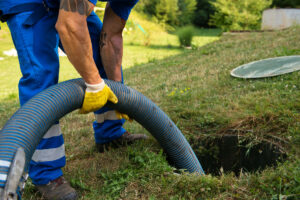Gas vs Electric Dryers – Which is Best?
-
 By
Ethan Clarke
By
Ethan Clarke

What better way to dry your clothes than by tossing them in the dryer? If anything, it’s a lot quicker than hanging them up to dry.
But have you ever considered the type of dryer that you have? Because there are two types and they each work differently to dry your clothes.
What’s better – gas or electric dryers? How are they different from one another? For the answers, be sure to keep reading. We’ll be going over everything you need to know below.
Table of Contents
ToggleGas vs Electric Dryers – The Main Differences
These dryers have the same purpose but operate in different ways.
How Gas Dryers Work
Gas dryers heat up with the help of natural gas or propane and generate heat through combustion upon activation of an electronic sensor.

When you start the machine, an electronic sensor triggers a pilotless ignition that lights up the fuel source, which is then used to create hot air to dry your clothes.
How Electric Dryers Work
Electric dryers, on the other hand, use only one type of energy – electricity. More specifically, they operate with either a 240-volt current (typical for most households).
The heating coils generate heat as the machine tumbles and it will continue until the sensors detect no more moisture, after which automatic cool-down begins.
Pros and Cons of Gas Dryers
Gas dryers are popular in the laundry room due to their efficiency. But like all appliances, they come with both advantages and disadvantages.
Operating Costs of a Gas Clothes Dryer

Gas dryers typically use natural gas or propane for heat generation, which makes them more energy-efficient than electric models over time. This means lower utility bills – a win for your wallet.
But what about the upfront costs?
While gas dryers cost more initially compared to electric clothes dryers, their operational savings can offset the extra expense within a few years, depending on usage frequency.
We also need to consider installation requirements as not all homes have the necessary hookups for gas dryers.
For example, you may need to install new gas lines if you don’t already have existing ones at home.
Sensor Drying Features and Fabric Care
Most modern gas dryers offer sensor drying technology.

They come with an electronic sensor that detects moisture levels in the garments during each drying cycle and automatically shuts off when no further moisture is detected.
Dry Times and Efficiency
Another compelling advantage is faster drying times.
Certain brands can even halve your waiting time, according to recent tests.
Remember though, performance varies by model so always check product specifications before buying.
Potential Gas Leakage
Like many appliances, gas leaks are a possibility with gas dryers. Fortunately, you can prevent that by inspecting your appliance on a regular basis.
The Pros and Cons of Electric Dryers
Electric dryers, often the more popular choice for homeowners, come with their own set of advantages and drawbacks.
On one hand, they are easier to install as most homes already have a 240-volt electrical outlet ready.
Faster Drying Time
An electric dryer can offer a faster drying time compared to some gas models.

This is due in part because they use electricity to generate heat directly into the drum where your clothes spin around.
As such, you’ll find that your clothes get dry in less time.
Easy to Install
You won’t need an existing gas line or special hookups when installing an electric dryer, which makes it convenient if you’re moving house frequently or living on rent.
But keep in mind that electric dryers do require access to a standard electrical outlet.
ACTIVE Washing Machine Cleaner
Did you know that your washer needs to be cleaned regularly to maintain performance?

15% Off Your Order on Amazon
×Click below to reveal the 15% off coupon for your entire ACTIVE purchase on Amazon.com
Installing Gas and Electric Dryers
Both types of dryers need a specific set of conditions to operate safely and efficiently.
How to Install a Gas Dryer
A gas dryer needs an existing gas hookup, preferably one close to the laundry room. You’ll also need a vent system leading outdoors.
Step 1: Install the Feet

Tilt the dryer onto its back and install the feet using a screwdriver. When you’re finished, tilt the machine back upright.
Step 2: Connect the Gas and Power

Connect the power cord to the machine, then connect the gas. Refer to the user manual, if necessary.
Step 3: Install the Vent

Attach the vent clamp to the vent and use it to connect it to the exhaust hose. Make sure everything is securely tightened.
Step 4: Check the Leveling

Once everything is all connected, push the dryer into place. Using a level, make sure the machine is even on all sides.
Finally, plug the dryer into a grounded outlet.
Supply:
- Screwdriver
- Level
If there’s no existing gas line, you’ll need to hire a reputable technician – one who will be able to extend your home’s gas service. Be sure they’re certified; this isn’t something you want to DIY.
Installing an Electric Dryer
An electric dryer is somewhat simpler – it just needs access to an appropriate electrical outlet – usually 240-volt current. However, it still demands adequate space for airflow around the appliance.
Supplies:
- Screwdriver
- Level
Step 1:
Start by installing the dryer leveling legs. To do that, you’ll need to tilt the dryer onto its back.

Step 2:
Connect the power cord to the back of the dryer. Remember, you can always check the user manual for specific instructions.

Step 3:
Place the vent clamp around the end of the venting hose and use it to connect the exhaust system. You’ll need to screw it into place with a screwdriver.

Step 4:
Make sure the dryer is even on the ground using a level, then plug it into a grounded electrical outlet.

If you’re unsure about any step during installation, get professional help right away.
Maintaining Your Gas or Electric Dryer
Proper care of your dryer, be it gas or electric, is crucial for its longevity and efficiency. Regular maintenance will help prevent issues like reduced drying times and excessive energy usage.
Maintenance Tips for Gas Dryers

Gas dryers require a bit more attention due to their unique setup.
First off, you need to ensure the pilotless ignition system is working properly; if not, it can lead to inefficient operation or even safety hazards.
The venting system also needs regular checks as blockages can reduce performance. If you’re unsure about this task, getting help from a reputable technician might be wise.
Maintenance Tips for Electric Dryers
Maintaining the venting system is also important for electric dryers – remember that good airflow ensures faster drying times and prevents overheating.
Gas vs Electric Dryers – FAQs
Which is better – a gas or electric dryer?
The “better” choice between a gas and electric dryer depends on your individual needs, including cost, energy efficiency, installation requirements, and environmental impact.
How much do you save with a gas dryer vs electric?
A gas dryer can be more cost-effective in the long run despite higher upfront costs due to lower operating expenses and will give you more energy savings.
Do gas dryers need to be vented?
Absolutely. You must have proper ventilation for your gas model so that it can safely carry away combustion gases from your home.
Do electric dryers need to be vented?
Yes, electric dryers also require adequate venting for heat dissipation and lint removal.
SAVE
15% off
Your Next ACTIVE
Purchase on Amazon
15% Off Your Order on Amazon
×Click below to reveal the 15% off coupon for your entire ACTIVE purchase on Amazon.com
Limited Time Offer




